As part of the celebrations for the Republic of China’s (ROC) centennial, the Ministry of the Interior (MOI) and other government agencies subsidized Lanyu Township Office in building the biggest traditional canoe built in Orchid Island (Lanyu, 蘭嶼) in a century.
However, the new balangay, a traditional canoe, has encountered rough sailing even before hitting the water.
Some Tao Aborigines have complained that the building of the canoe and launch ceremonies did not follow tradition, and that the canoe’s owner was Han Chinese ethnicity.
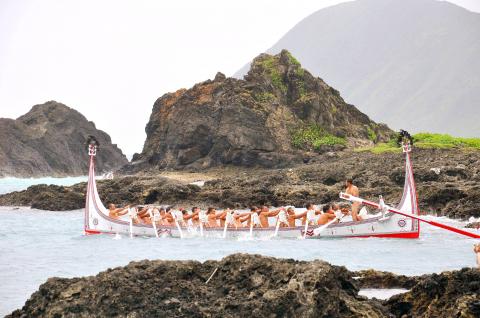
Photo: Huang Ming-tang, Taipei Times
Complaints are also circulating on the Internet.
Some netizens have said material for the keel came from Taiwan proper instead of from trees on Orchid Island as tradition dictates, and that electrical tools were used in the building process, contradicting the ministry’s promotional materials, which state: “The old men work with the axes they’re used to, and every cut symbolizes the beginning of a new history.”
Some Tao critics said the building of the canoe was an exercise in “cultural bullying,” exploitative and offensive because the canoe will be sold through an auction after it has been rowed to Taipei.
The registered owner of the canoe, Huang Cheng-teh (黃正德), yesterday said he had not wanted to be listed as the owner, but the Tao did not want their names put down because the canoe broke a Tao taboo that balangay should not have more than five pairs of oars, so the construction team decided to use his name.
The 11m long, 2.8m high decorated canoe has nine pairs of oars.
However, Huang, who is secretary of the Lanyu Township Office, defended the decision to auction the canoe, saying that it was government property, not the product of tradition.
He said the auction would benefit the Tao because the auction proceeds would go to Lanyu’s cultural education foundation, which would include funds to help the Tao build another balangay the traditional way.
The event will be beneficial to Lanyu culture, Huang said, adding that he hoped everyone involved could take a tolerant view of things.
However, the secretary of the Tao Foundation, Hsiao Yu-shuang (蕭玉霜), said construction of the canoe had repeatedly violated Tao traditions and their taboos.
For example, traditional taboos ban the building of boats between March and June, but the canoe was constructed during this period, causing many Tao Aborigines to feel ill at ease, Hsiao said.
Although the new balangay is the largest ever built, the fact that it was built in breach of many taboos has caused rifts among Tao tribe members, he said.
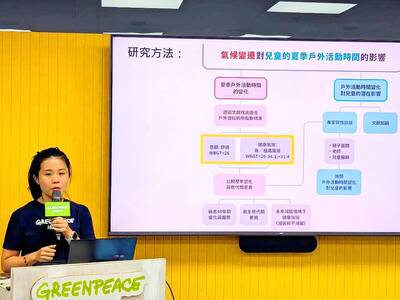
The government should improve children’s outdoor spaces and accelerate carbon reduction programs, as the risk of heat-related injury due to high summer temperatures rises each year, Greenpeace told a news conference yesterday. Greenpeace examined summer temperatures in Taipei, New Taipei City, Taoyuan, Hsinchu City, Taichung, Tainan and Kaohsiung to determine the effects of high temperatures and climate change on children’s outdoor activities, citing data garnered by China Medical University, which defines a wet-bulb globe temperature (WBGT) of 29°C or higher as posing the risk of heat-related injury. According to the Central Weather Administration, WBGT, commonly referred to as the heat index, estimates
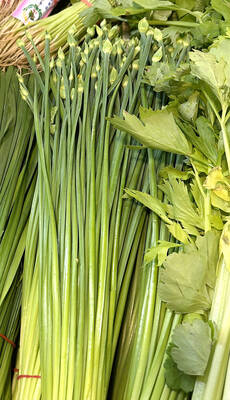
The Taipei Department of Health’s latest inspection of fresh fruit and vegetables sold in local markets revealed a 25 percent failure rate, with most contraventions involving excessive pesticide residues, while two durians were also found to contain heavy metal cadmium at levels exceeding safety limits. Health Food and Drug Division Director Lin Kuan-chen (林冠蓁) yesterday said the agency routinely conducts inspections of fresh produce sold at traditional markets, supermarkets, hypermarkets, retail outlets and restaurants, testing for pesticide residues and other harmful substances. In its most recent inspection, conducted in May, the department randomly collected 52 samples from various locations, with testing showing
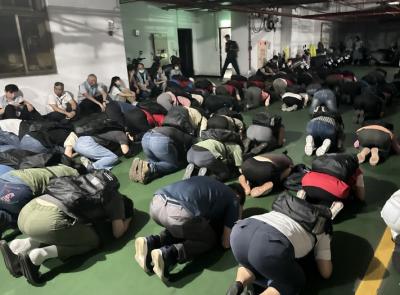
Taipei and other northern cities are to host air-raid drills from 1:30pm to 2pm tomorrow as part of urban resilience drills held alongside the Han Kuang exercises, Taiwan’s largest annual military exercises. Taipei, New Taipei City, Keelung, Taoyuan, Yilan County, Hsinchu City and Hsinchu County are to hold the annual Wanan air defense exercise tomorrow, following similar drills held in central and southern Taiwan yesterday and today respectively. The Taipei Mass Rapid Transit (MRT) and Maokong Gondola are to run as usual, although stations and passenger parking lots would have an “entry only, no exit” policy once air raid sirens sound, Taipei
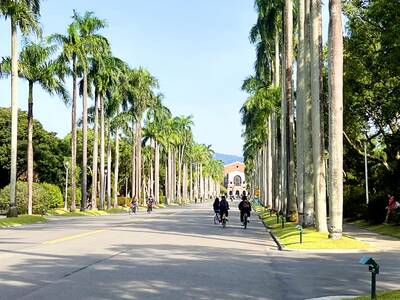
Taipei placed 14th in the Quacquarelli Symonds (QS) Best Student Cities 2026 list, its highest ever, according to results released yesterday. With an overall score of 89.1, the city climbed 12 places from the previous year, surpassing its previous best ranking of 17th in 2019. Taipei is “one of Asia’s leading higher-education hubs,” with strong employer activity scores and students “enjoying their experience of the city and often keen to stay after graduation,” a QS staff writer said. In addition to Taipei, Hsinchu (71st), Tainan (92nd), Taichung (113th) and Taoyuan (130th) also made QS’ list of the top 150 student cities. Hsinchu showed the